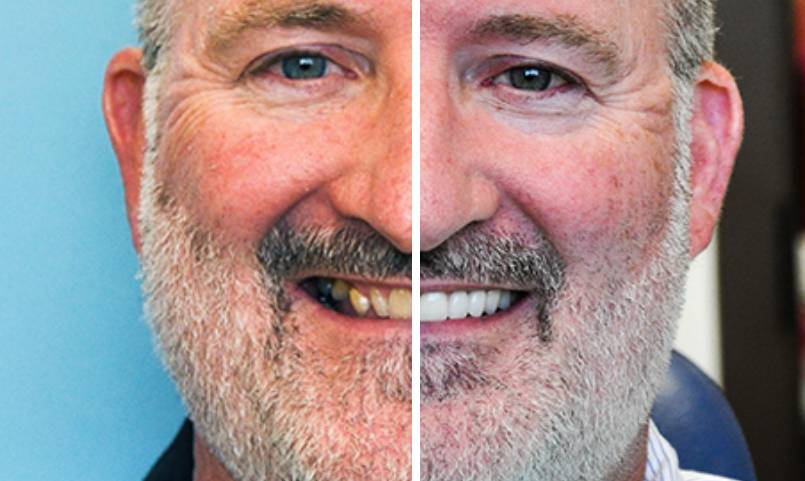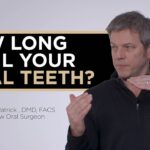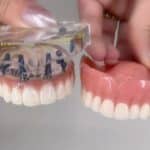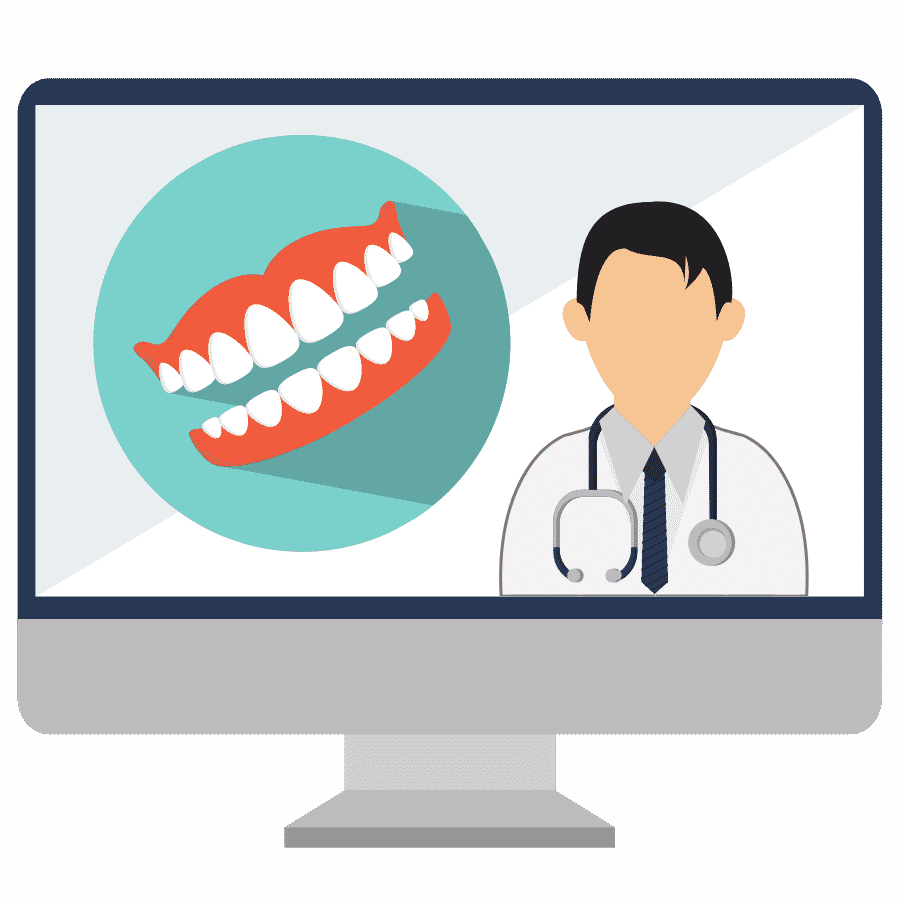Is There a Cure for Periodontal Disease?
Yes. The only real cure for periodontal disease is to have all of the teeth removed and replaced with a full set of implant-supported teeth. When periodontal disease is diagnosed, it cannot be reversed by medications or nonsurgical treatments. Modern treatments for the disease are often related to prevention and management rather than providing a cure. The only way to fully get rid of periodontal disease is to extract the infection at its source by extracting the teeth. The bacteria cannot live, so the periodontal disease leaves the body. The teeth will then be replaced with a full set of implant-supported teeth.
Once periodontal disease has been diagnosed, it cannot be reversed by medications or nonsurgical treatments. Modern treatments for the disease are often related to prevention and management rather than providing a cure. But management of the disease is time consuming and risky, leaving open the potential for infection to make a comeback at any time.
Patients come to us with the same concerns you’re likely struggling with now. Why is it dangerous to live with periodontal disease? And, how can you get rid of periodontal disease for good?
You don’t have to live with periodontal disease for the rest of your life. Luckily, there is a safe and effective method to eliminate this embarrassing and dangerous disease.
How Does Periodontal Disease Affect Your Overall Health?
Our oral health is closely intertwined with our overall physical health.
If you’ve ever attended a New Teeth Now webinar, then you’ve heard oour oral surgeons discuss how the mouth is the gateway to the body’s digestive and respiratory systems. When oral health is compromised that gateway is left vulnerable to harmful invaders.
In this way, oral health impacts the overall health of the body.
Why Does Gum Disease Happen?
A healthy mouth does have manageable amounts of mostly harmless bacteria in it. Saliva naturally fights off the harmful bacteria that are present to keep this balance in check. However, factors like poor oral hygiene, hormonal changes, lack of saliva and genetic disorders can lead to bad bacteria taking over.
The overpopulation of harmful bacteria will create plaque that builds on the teeth and infects the gums. Left unchecked, your mouth can develop gingivitis, or a more serious gum infection, periodontitis (periodontal disease).
It’s important to note that once gum disease progresses into periodontitis the disease has become irreversible. Periodontitis cannot be cured, but only managed.
The Risks of Living with Periodontal Disease
As you already know, periodontal disease affects overall health. Those at the highest risk have pre-existing conditions such as heart disease or are immunocompromised.
Inflammation caused by gum disease forces the immune system into overdrive. As a result, periodontitis reduces the effectiveness of the body’s entire immune system. This in turn leads to a shortened life expectancy, among a host of systemic diseases and health complications.
Left unresolved, periodontal disease is known to cause life-threatening and systemic health issues including…
Heart attack or stroke – Gum infections allow the bacteria to enter the bloodstream through the gums, forming plaque and blood clotting. Blood clots may restrict the flow of blood and lead to heart attack or stroke.
Respiratory diseases – Infection in the gums can alert the body and cause further inflammation in the airways, complicating conditions like asthma and COPD (Chromic Obstructive Pulmonary Disease).
Digestive diseases – Bacteria that causes infection in the gums has a direct route into the digestive tract. The spread of gingivitis can cause inflammation in the gut and instigate the development of gastrointestinal disease.
Low preterm birth weight – This condition has been reported in newborns of mothers who suffer from gingivitis as a result of bacteria entering the bloodstream during pregnancy.
Osteoporosis – While mainly relating to bone loss in the jaw, there is also research linking osteoporosis and gingivitis. Our qualified oral surgeons specialize in providing services to people who suffer from bone loss.
Diabetes – People with diabetes are at a higher risk of developing periodontal disease. It’s also the case that once gum disease as progressed, diabetes becomes more difficult to manage as bacteria present in the blood stream can lead to an increase in blood-sugar levels.
The bottom line is that the longer your body is fighting any low-grade chronic infection, the higher your risk of developing complications and falling victim to life threatening conditions.
periodontal disease wages war against your health. This constant battle keeps your immune system in a state of overdrive, and long term this will reduce the effectiveness of your immune system and shorten your life expectancy.
Rather than living with this disease, what can be done?
New Teeth Now Provides a Permanent Solution to Periodontal Disease
The only way to fully get rid of periodontal disease is to extract the infection at its source and replace your teeth with a full mouth implant procedure. Full mouth restorations through New Teeth Now eliminate invasive bacteria at its source, shielding your health with improved oral hygiene.
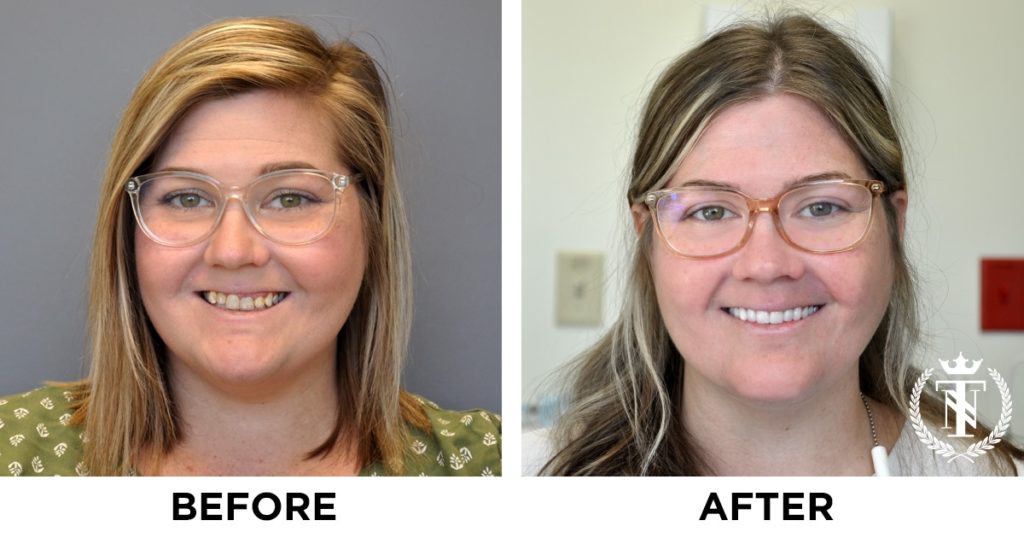
Are you tired of living with periodontal disease? Symptoms like receding gums, tooth sensitivity, unsightly staining, bad breath, and bleeding can be embarrassing and difficult to manage. You don’t have to live with these issues anymore.
New Teeth Now can help you regain your health and confidence with the smile you’ve always dreamed of. Give us a call to schedule an appointment.


